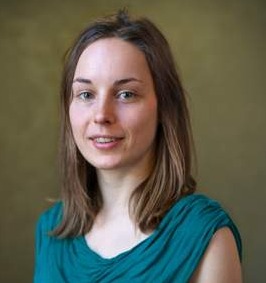Multiscale Modeling and its Applications
Multiscale modeling is a powerful approach to studying complex systems in various fields such as biology, chemistry, physics, and engineering. It involves using multiple models at different scales, from the microscopic level to the macroscopic level, to understand how a system behaves and evolves over time.
During this summer school, participants will learn the fundamentals of multiscale modeling, including how to identify the relevant scales for a given problem and how to integrate different models to create a comprehensive and accurate description of the system. They will also have the opportunity to see these concepts applied to real-world problems.
The summer school is designed for advanced master and PhD students with a background in mathematics, physics, engineering, computer science, or a related field. It will provide a unique opportunity to gain hands-on experience in multiscale modeling and to network with experts in the field.
The programme will consist of five mini-courses led by leading researchers in mathematics, numerical analysis, physics, and engineering.
Overall, this summer school will provide a comprehensive introduction to the exciting field of multiscale modeling focusing on the relevant topic of multi-agent systems, equipping participants with the skills and knowledge they need to tackle complex problems and advance their careers.
Practical information
|
Dates
|
25 - 29 August 2025
|
|
Location
|
Groningen, the Netherlands
|
|
Level
|
MA/PhD |
|
Fee |
€350 includes lunches/coffee/one dinner/one social event
|
|
Academic coordinator
|
Hildeberto Jardón Kojakhmetov , Faculty of Sciences and Engineering |
|
Contact |
multiscale.school rug.nl |
Requirements
This summer school is designed for Master students in the late stage of their studies or PhD students starting their programme. Basic undergraduate courses common to mathematics/computer science/engineering bachelor programs will be assumed.
It is expected that the participants have a sufficient command of the English language to actively participate in the discussions and to present their own work in English.
Course schedule
See the preliminary schedule below.
Learning outcomes
After this course you will be able to:
-
Understand what multiagent based modeling means
-
Understand the role of multiple scales in several problems in physics and engineering
-
Get to know a few mathematical techniques relevant for analysis
-
Grasp open-problems in the field
Workload & certificate
Lectures: 20-24 hours
Presentation: 4 hours
Upon successful completion of the programme, the Summer School offers a Certificate of Attendance that mentions the workload of 24 hours (28 hours corresponds to 1 ECTS). Students can apply for recognition of these credits to the relevant authorities in their home institutions, therefore the final decision on awarding credits is at the discretion of their home institutions. We will be happy to provide any necessary information that might be requested in addition to the certificate of attendance.
Introduction to lecturers

Thilo Gross
I am a Professor of Biodiversity Theory at Carl von Ossietzky Uni versity, Oldenburg. In parallel I work at the Helmholtz Institute for Functional Marine Biodiversity, which is part of the Alfred-Wegener Institute for Marine and Polar research.
In my work I use Network and Data Science, Statistical Physics and Nonlinear Dynamics to develop new approaches to complex real world systems. A central focus of my work is on ecological systems but I have worked in a broad variety of fields ranging from operations research to cell biology and medicine.
I developed a generalized modelling [1], a dynamical modelling approach where one describes the structure of a system, but doesn’t specify the precise functional forms of interactions. Thus a single generalized model can describe a whole family of models for a given real world system. Despite their generality, generalized models can be analyzed very efficiently, which enables the researcher to rapidly narrow down what kinds are models can plausibly describe the system under consideration.
I have also made several contributions to the exploration of adaptive networks [2], a field of network science whose name was popularized by my paper [3]. In an adaptive network the topology of the network can change in response to the state of the nodes. For instance in an epidemic infected people might self-isolate and thus break links in the networks of contacts across which the disease is trans mitted. Thus a feedback loop between the dynamics of the network nodes and the evolution of the network structure is formed that gives adaptive networks the ability to self-organize in unusual and often surprising ways.
Recently I have been dipping my toes in data analysis. My work in this area including using Egyp tian art history to understand food web responses to climate change [4], figuring out causality from correlations [5], or using diffusion maps to find effective variables for cities [6] and bacteria [7].
[1] Generalized models as a universal approach to the analysis of nonlinear dynamical systems T Gross and U Feudel Phys. Rev. E 73, 016205, 2006
[2] Adaptive coevolutionary networks: a review T Gross and B Blasius J. R. Soc. Interface. 5, 259-271, 2007
[3] Epidemic Dynamics on an Adaptive Network T Gross, CJ Dommar D’Lima and B Blasius Phys. Rev. Lett. 96, 208701, 2006
[4] Generalized modeling of ecological population dynamics JD Yeakel, D Stiefs, M Novak et al. Theor Ecol 4, 179-194, 2011
[5] A closed form for Jacobian reconstruction from time series and its application as an early warning signal in network dynamics E Barter, A Brechtel, B Drossel et al. Proc. R. Soc. A. 477, 20200742, 2021
[6] Manifold cities: social variables of urban areas in the UK E Barter and T Gross Proc. R. Soc. A. 475, 20180615, 2019
[7] Mapping the bacterial metabolic niche space AK Fahimipour and T Gross Nature Commun. 11, 4887, 2020

Ming Cao
Ming Cao is Professor of Networks and Robots at the Faculty of Science and Engineering. His research focuses on multi-agent systems, complex systems and networks, sensor networks and autonomous robots. Cao conducts ground-breaking research in the field of control systems that allow groups of autonomous robots to work together. If autonomous cars and robots are to function effectively and safely, they must be able to take each other’s actions into account. Cao works on this development with colleagues from the fields of sociology, mathematics and biology. The algorithms he develops for robots are partly inspired by the movements of animals, particularly fish and birds, which also act in formation. Ming Cao has been appointed as Director of the Jantina Tammes School of Digital Society, Technology and AI.
Cao obtained a Bachelor’s degree in Engineering at Tsinghua University in Peking, China, in 1999. He then graduated as a Master of Engineering at the same university in 2002. In 2003, he also obtained a Master of Science degree at Yale University in New Haven, the United States, and in 2007, he was awarded a PhD by the Department of Electrical Engineering at Yale University. In 2023, Cao received a Vici grant for his research on decision-making of autonomous robots.

Clara Stegehuis
I am an associate professor at Twente Universty. I work at the intersection of probability theory, graph theory and stochastic networks, with an emphasis on asymptotic analysis, stochastic process limits, and randomized algorithms. Problems I investigate are inspired by applications in network science, physics and computer science. Some of my research interests are:
Epidemic spreading and percolation Epidemic and percolation processes on networks have many applications, ranging from virus spreading to internet outages. I am interested in analyzing epidemic or percolation processes on random graph models: null models for real-world networks. How do communities, small groups of densely connected nodes influence the spread of an epidemic? And what happens at the threshold where a giant outbreak emerges?
Network motifs Small subgraphs that occur frequently in a network data set can reveal interesting properties of the underlying data. I am interested in the occurrence of these small subgraphs in random graph models. How frequently do subgraphs appear in random graph models? And where in the graph can they be found? Interestingly, in many random graph models, subgraphs concentrate on a small set of vertices of specific degrees. These vertices can be found by solving optimization problems.
Asymptotic network properties Real-world networks are often very large. I am interested in investigating what happens to structural network properties in the large-network limit, such as degree degree correlations and clustering.
Geometric networks In most networks, we can interpret the vertices as lyng in a geometric space. For example, internet users may have a two-dimensional position. But in social media networks, you can interpret the position of a person as its interests, location and so on. In most applications, vertices that are close, are more likely to connect. I am interested in investigating such geometric networks from a mathematical point of view. Can we quantify the robustness of the internet? And how can we get the geometric coordinates from the network structure?

Marco Ruscone
Marco Ruscone is a postdoctoral researcher in the Life Science Department, coordinated by Professor Alfonso Valencia, at the Barcelona Supercomputing Center (BSC). He began his academic career in Turin, Italy, earning a bachelor’s degree in Physics and a master’s degree in Physics of Complex Systems for Biology from the Università degli Studi di Torino. He completed his PhD in Computational Biology at the Institut Curie in Paris, under the mentorship of Dr. Laurence Calzone, Dr. Andrei Zinovyev, and Dr. Vincent Noël. His research centers on developing multiscale models for cancer, employing a hybrid approach that combines agent-based modeling techniques and stochastic simulations on Boolean networks.

Herbert Jaeger studied Mathematics in Freiburg (Germany), specialising in formal logic, then did a PhD in Bielefeld (Germany) in the classical AI (knowledge-based systems) group of Ipke Wachsmuth, became interested in dynamical systems modeling in cognitive science, which led to a postdoc in the autonomous robots research team of Thomas Christaller at the (then) German National Research Institute for Mathematics and Computer Science (GMD) in Sankt Augustin (Germany), where he drifted towards signal processing, machine learning and recurrent neural networks, which in turn allowed him to found and head a GMD research unit on modeling intelligent dynamical systems (MINDS).
Then from 2001 to 2019 he served as professor in the CS department of the private Jacobs University Bremen (Germany) where he taught theoretical CS and machine learning and continued thinking about mathematical modeling of cognitive dynamics, which somehow got him pulled into the fields of unconventional computing, which in turn in 2010 led to an appointment at the University of Groningen, where he still uses the name MINDS for his group and where he still teaches machine learning but now dedicates all thinking efforts to unconventional computing theory, often in collaboration with mathematicians, theoretical computer scientists, materials scientists, microchip engineers, cognitive scientists and AI/machine learning colleagues. His lifetime dream is to develop a mathematical language for modeling general information-processing dynamical systems.
Scholarship
A limited number of registration fee waivers are available for students enrolled at the University of Groningen or the University of Oldenburg. If you are a student at either university, please indicate this by selecting the appropriate box in the registration form. We will inform you as soon as possible whether your registration fee can be covered.
Application procedure
To apply, kindly fill out the online application form. Please note that you will be asked to upload the following documents:
-
Curriculum Vitae (max. 1 page)
-
Motivation letter, clearly stating why you want to join this summer school, what you will bring to the school and what you hope to learn (max. 1 page)
The deadline for application is 25 July 2025. Selected applicants will be informed by 4 July 2025.
